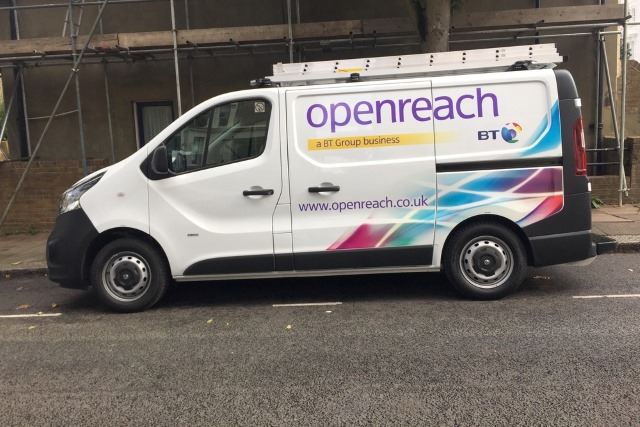Ofcom to force Openreach to separate from BT

BT has been under pressure from industry regulator Ofcom to separate Openreach, its broadband telecoms network, from its retail business. Having failed to voluntarily cooperate, the company will now be forced to separate in order to address concerns about competition.
There have long been worries that BT's position of controlling the UK broadband network while simultaneously operating a retail business was a conflict of interest, and Ofcom recently informed BT that Openreach must be transformed into a "legally separate company" to BT. Ofcom believes that creating a separate Openreach will help in its goal of "better service quality and encouraging greater investment in networks".
In a statement about plans to reform Openreach, Ofcom says it is "proceeding with a formal notification to require the legal separation of Openreach from BT, after BT failed to offer voluntary proposals that address our competition concerns". The regulator says that its primary concern is delivery of better service to customers, going on to point out that proposals put forward by BT have been insufficient to counter concerns.
We are disappointed that BT has not yet come forward with proposals that meet our competition concerns. Some progress has been made, but this has not been enough, and action is required now to deliver better outcomes for phone and broadband users.
Ofcom wants Openreach to be a completely distinct company with its own board of directors. The regulator now intends to notify the European Commission of its plans to force the separation of the two businesses but says that "we remain open to BT bridging the gap between its proposal and what is required to address our strong competition concerns".
There are now new suggestions for BT to consider, says Ofcom:
Separation models
We have considered carefully the calls for the structural separation of Openreach, which would split BT and Openreach into two entirely separate companies, under different ownership. Stakeholders have also provided a range of views on how our July proposal for legal separation could be enhanced to address the competition concerns identified.
Responses to our consultation also make clear that structural separation could generate materially greater costs and risks compared to models based on legal separation. This includes the costs of physically separating the two businesses, and effects on the BT pension scheme. Structural separation is the most intrusive form of regulatory intervention available.
BT's pension scheme
In response to our consultation, BT told us that our proposed model would trigger substantial costs, and highlighted the impact of our proposals on the BT Pension Scheme Trustees. The Trustees of the scheme echoed this concern, as did the unions who represent most BT employees. However, most stakeholders who responded to our consultation took the view that the concerns raised by BT, the unions and Trustees relating to the BT Pension Scheme have been overstated.
We have today published a note setting out some background on the BT Pension Scheme, and our initial views as to how we might take forward the questions raised in these consultation responses.
Ofcom's current view
Our current view is still that an effective and robust form of legal separation, with Openreach as a wholly-owned subsidiary of BT, is likely to achieve the greatest improvements for everyone in the shortest amount of time. Therefore, this is the approach with which we are minded to proceed.
Our model will include proposals to publicly scrutinise and monitor its effectiveness against several measures of success. The most direct will be whether Openreach Board decisions are taken independently, without undue influence from BT Group. If Ofcom’s monitoring suggests that legal separation is not delivering sufficient benefits for the wider telecoms industry and its customers, we will return to the question of structural separation – fully breaking up the companies.
Responding to the news, Dan Howdle from Cable.co.uk says:
It's tough to read whether BT's heel-dragging is as a result of a tactic with the intention to deliberately delay and undermine the process, or whether, rather like Brexit, the process of separating Openreach is simply too vast and complex to be fully planned out in such a short period of time. That Ofcom has had to speak out of its 'frustration' suggests to me there is more to this delay than bureaucracy and red tape -- that unwillingness to comply is also playing some part.
Image credit: Martin Hoscik / Shutterstock